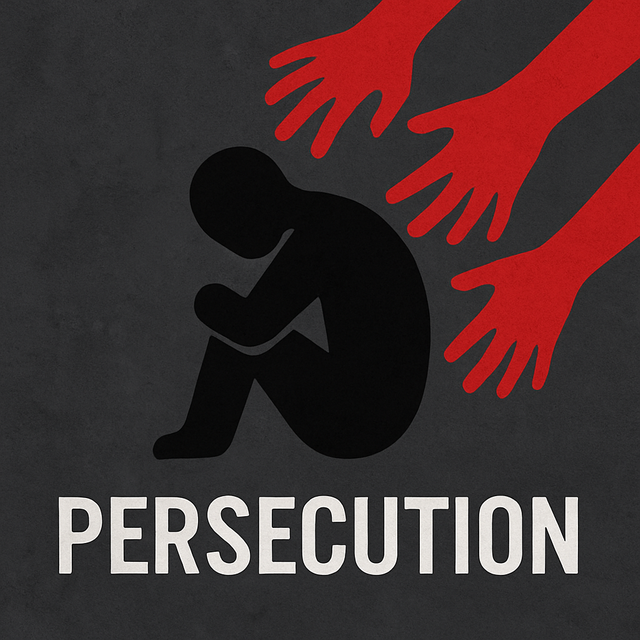Understanding Persecution: Causes, Impact, and the Power of Resilience
Introduction
Persecution is not just a word in history books. It’s a painful reality for millions of people across the globe today. Whether it's because of religion, ethnicity, political beliefs, or social status, persecution strips people of their basic rights and dignity. But what exactly is persecution? Why does it happen? And most importantly—how do people survive and rise above it?
In this blog post, we’ll explore the concept of persecution, examine real-life examples, and highlight the strength of the human spirit in the face of injustice.
What Is Persecution?
Persecution is the systemic mistreatment or oppression of individuals or groups, usually because of their beliefs, identity, or affiliations. It can be physical, emotional, legal, or social—and it’s often supported or ignored by authorities.
Types of persecution include:
Religious persecution – Targeting individuals for their faith (e.g., Christians, Muslims, Jews, etc.)
Political persecution – Punishing people for their opinions or activism
Ethnic or racial persecution – Discrimination and violence based on ethnic background or skin color
Gender-based persecution – Oppressing individuals because of their gender or sexual identity
Historical and Modern Examples
Historical: The Holocaust during WWII, where over 6 million Jews were persecuted by Nazi Germany.
Modern: Rohingya Muslims in Myanmar, Uyghur Muslims in China, or political dissidents in authoritarian regimes.
These examples remind us that persecution can happen anywhere, anytime—and often goes unnoticed until it's too late.
Why Does Persecution Happen?
Persecution often stems from fear, ignorance, or the desire for control. When a dominant group feels threatened by a minority, they may resort to exclusion, propaganda, or violence. Governments may also use persecution to silence opposition or maintain power.
Factors contributing to persecution include:
Nationalism or extremism
Political instability
Economic hardship
Misinformation and media manipulation
The Psychological and Social Impact
The effects of persecution are devastating. Victims often experience:
Trauma, PTSD, or depression
Loss of identity and culture
Social isolation or forced migration
Economic insecurity
Whole communities can be displaced, and generations may grow up in fear and silence.
Stories of Resilience
Despite the horrors of persecution, stories of hope emerge. Survivors become activists. Refugees become leaders. Communities rebuild and reclaim their dignity.
Examples:
Malala Yousafzai, who survived a Taliban attack and became a global advocate for girls' education.
Nelson Mandela, who spent 27 years in prison before becoming South Africa’s first Black president.
These individuals show that while persecution wounds, it cannot extinguish the human spirit.
What Can We Do?
Raise Awareness: Share stories, blog posts, and documentaries.
Support Organizations: Donate or volunteer with NGOs fighting for justice.
Speak Out: Use your voice to call out injustice wherever you see it.
Educate Yourself: Learn about the history and current realities of marginalized groups.
Conclusion
Persecution is a harsh reality—but it’s one we can challenge through knowledge, empathy, and action. Whether you’re a student, activist, or everyday global citizen, you have a role to play in creating a world where freedom, dignity, and human rights are protected for all.
Let’s choose to stand with the persecuted. Let’s be the voice that defends the voiceless.
